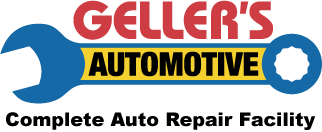 The majority of today’s vehicles come with an anti-lock braking system as a standard feature. The anti-lock braking (ABS) system is a component that helps you safely stop your vehicle in adverse conditions – whether you have to stop very quickly or the road is slippery. To simplify it, the ABS prevents the wheels on your vehicle from locking up and causing you to skid out of control.
The majority of today’s vehicles come with an anti-lock braking system as a standard feature. The anti-lock braking (ABS) system is a component that helps you safely stop your vehicle in adverse conditions – whether you have to stop very quickly or the road is slippery. To simplify it, the ABS prevents the wheels on your vehicle from locking up and causing you to skid out of control.
How does the ABS work?
It’s the anti-lock braking system’s job to keep the wheels from skidding while you slow down. When the ABS becomes engaged, you’ll stop faster and will also be able to steer while you stop. But how does the ABS know when a wheel is about to lock up? There are 4 components to the ABS – speed sensors, valves, pump and controller. The controller is continually monitoring the speed sensors looking for unordinary decelerations, or in the case of a wheel locking up, a rapid deceleration. When a rapid deceleration occurs, the controller reduces the pressure to the brake until it notices an acceleration. This allows the tires to slow down at the same rate as your car. When the ABS system is operating, you’ll feel a “pulsing” sensation in the brake pedal.
About the ABS Warning Light
There are a lot of warning lights on dashboards, each one alerting us to problems with specific engine systems or components in our vehicle. It’s a great idea to become acquainted with each light and what it’s communicating about your vehicle. In this month’s post, we hope to answer several questions you may have about you’re the ABS warning light – What is the ABS warning light? What does it mean when the ABS warning light comes on while I’m driving? Is my vehicle still safe to drive when it’s lit?
- What is the ABS warning light? The ABS computer does a power-on self test every time you cycle the ignition. You’ll notice the light comes on momentarily when you start your vehicle. If the ABS computer finds a problem with the system (e.g. a hydraulic pump or valve isn’t responding), the warning light will illuminate on your dash.
- What does it mean when the ABS warning light comes on while I’m driving? If the ABS light comes on when you are driving, it indicates there is an issue with the ABS – it is currently not functioning. In this situation, normal braking is still operational, but without the benefits of the anti-lock brakes. In most cases, the light will turn off the next time you turn on the ignition and the ABS computer does its self test. If, after it goes through its self test, the light remains on, you should bring it in to Geller’s Automotive in Stanhope, NJ. We’ll be able to check the computer and perform a diagnostic to determine the problem.
- Is my vehicle still safe to drive when the ABS warning light is illuminated? Yes, your vehicle is safe to drive, but you should have us check it out if the light remains illuminated. It’s also important to note that if both the ABS and Brake System warning lights come on at the same time while you’re driving, you should stop the vehicle as soon as it’s safe to do so and call for a tow.
Tips for Driving with Anti-Lock Brakes
It can feel a little disconcerting to experience the pulsing sensation coming from the anti-lock brakes. The National Safety Council provides some excellent tips for driving with ABS. You can click here to download and read their information sheet “Tips for Driving with ABS (Anti-Lock Brake Systems).”
If you are concerned about your vehicle’s braking system, it’s important to have it checked right away (see our page on Brake Repair to learn some of the signs you may need a brake job). The technicians at Geller’s Automotive in Stanhope, New Jersey, can inspect your braking system. We’ll inspect the discs for rough spots or signs of damage, brake pads will be checked to see how much is left, and the brake lines will be examined for cracking and corrosion. Once we know what is wrong with your brakes, our technicians will let you know so you can approve the work to be done on your braking system.
Contact Geller’s Automotive in Stanhope, NJ, to schedule a brake inspection or brake repair today.



